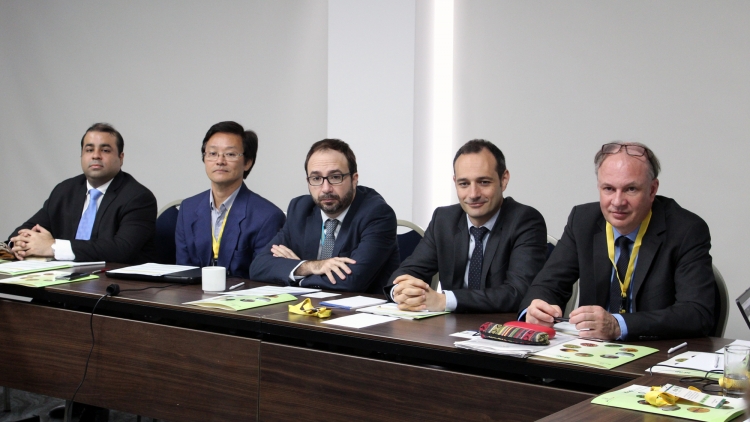Mutant lines of rice, bean, wheat, quinoa, and tomato are being developed to increase yields and their resistance to harsher conditions. That includes tolerance to drought, extreme temperatures and salinity, as well as resistance to diseases and herbicides. New crop varieties will also have enhanced potential to face the effects of climate change. A number of advanced mutant lines are already in the process of official variety release
This comes as the first results from an IAEA regional technical cooperation project, now in its third year of implementation, were presented during a mid-term review meeting in Panama City, Panama, from 11 to 15 June 2018. The goal is to develop climate-resilient varieties of crops of economic importance, with good yields and quality characteristics. The project[1], carried out in cooperation with the Food and Agriculture Organization of the United Nations (FAO), aims to increase the yield and commercial potential of crops that are economically important to the Latin America region through mutation breeding.
Participating countries, including Argentina, Brazil, Chile, Colombia, Costa Rica, Cuba, Ecuador, El Salvador, Jamaica, Mexico, Nicaragua, Panama, Paraguay, Peru and Plurinational State of Bolivia, are working to improve crops using induced mutation. Each participant is working with one or several crops relevant to their country, giving a broad scope to the project.
“Plant mutation techniques have had enormous success worldwide for development of new and better adapted crop varieties. These will ultimately help in the attainment of some of the Sustainable Development Goals (SDGs)”, said Stephan Nielen from the Joint FAO/IAEA Division, technical officer for the project.
The mid-term review meeting was attended by representatives from the participating countries, including Paraguay, which is leading the project. Paraguay facilitated discussions at the meeting, together with Javier Romero, the project’s managing officer of the IAEA Technical Cooperation Division for Latin America and the Caribbean, and the technical officer. The FAO Subregional Office for Mesoamerica (SLM) was represented by Jorge Samaniego, Production and Plant Protection Officer, who presented FAO initiatives in the region and explored possible synergies with the project.
The plan of activities for the 2018–2019 period, covering training needs and materials, was discussed and elaborated. This will include a training course in molecular biology and bioinformatics for the genetic improvement of agricultural crops obtained through induced mutation; and a training course in participatory selection methodologies for crops of regional importance. The participants agreed that training in gene expression analysis using high throughput sequencing technologies was also needed.
[1] RLA5068, ‘Increasing the yield and commercial potential of crops of economic importance (ARCAL CL)’







